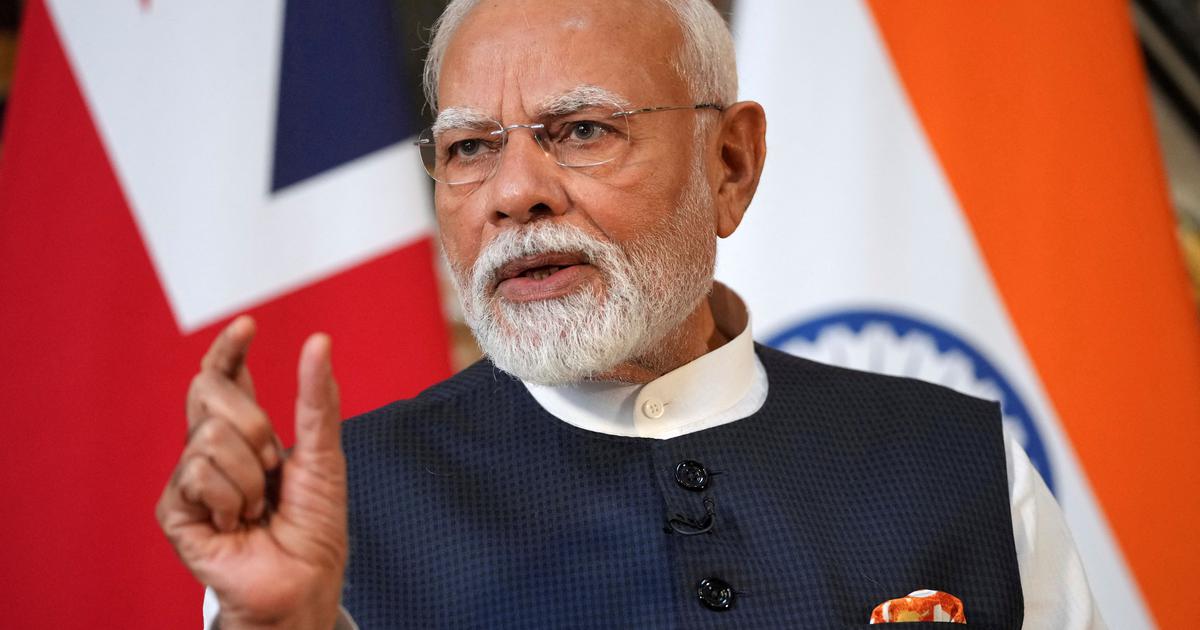
News
September 06, 2025
Anand Teltumbde: Why the controversy about Modi’s degrees is a test for Indian democracy
By shielding the prime minister’s documents from scrutiny, the court has told Indians that we don’t need to ask questions – we only need to believe our leader.
**The Controversy Over Modi's Degrees: A Litmus Test for Indian Democracy**
The ongoing debate surrounding Prime Minister Narendra Modi's educational qualifications has become more than just a question of academic credentials. It's now a focal point in a larger discussion about accountability, transparency, and the very health of Indian democracy, according to prominent scholar and activist Anand Teltumbde.
Teltumbde argues that the reluctance to allow public scrutiny of the Prime Minister's degree certificates sends a worrying message to the citizens of India. He suggests that by effectively shielding these documents from examination, the courts, and by extension the government, are discouraging critical inquiry and fostering a culture of unquestioning faith in leadership.
The core of the issue, as Teltumbde sees it, is the principle that in a democracy, citizens have the right to ask questions and demand answers from those in power. This right is fundamental to ensuring that leaders are held accountable for their actions and that the public is well-informed. When access to information is restricted, particularly regarding matters of public record like educational qualifications, it undermines this vital democratic process.
The controversy has sparked widespread debate across the country, with supporters of the Prime Minister often dismissing the issue as irrelevant or politically motivated. However, critics argue that the government's resistance to transparency only fuels speculation and suspicion. They maintain that the Prime Minister, like any other public servant, should be subject to scrutiny and that his educational background is a legitimate area of public interest.
Teltumbde's perspective underscores the broader implications of the controversy. He warns that the message being conveyed is that blind faith and obedience are valued more than critical thinking and informed consent. This, he believes, poses a significant threat to the principles of open government and citizen empowerment that are essential for a functioning democracy.
The debate continues, highlighting the tension between the right to information and the perceived need to protect the image of the Prime Minister. The way this controversy unfolds will likely have lasting implications for the relationship between the government and the governed, and for the overall health of India's democratic institutions.
The ongoing debate surrounding Prime Minister Narendra Modi's educational qualifications has become more than just a question of academic credentials. It's now a focal point in a larger discussion about accountability, transparency, and the very health of Indian democracy, according to prominent scholar and activist Anand Teltumbde.
Teltumbde argues that the reluctance to allow public scrutiny of the Prime Minister's degree certificates sends a worrying message to the citizens of India. He suggests that by effectively shielding these documents from examination, the courts, and by extension the government, are discouraging critical inquiry and fostering a culture of unquestioning faith in leadership.
The core of the issue, as Teltumbde sees it, is the principle that in a democracy, citizens have the right to ask questions and demand answers from those in power. This right is fundamental to ensuring that leaders are held accountable for their actions and that the public is well-informed. When access to information is restricted, particularly regarding matters of public record like educational qualifications, it undermines this vital democratic process.
The controversy has sparked widespread debate across the country, with supporters of the Prime Minister often dismissing the issue as irrelevant or politically motivated. However, critics argue that the government's resistance to transparency only fuels speculation and suspicion. They maintain that the Prime Minister, like any other public servant, should be subject to scrutiny and that his educational background is a legitimate area of public interest.
Teltumbde's perspective underscores the broader implications of the controversy. He warns that the message being conveyed is that blind faith and obedience are valued more than critical thinking and informed consent. This, he believes, poses a significant threat to the principles of open government and citizen empowerment that are essential for a functioning democracy.
The debate continues, highlighting the tension between the right to information and the perceived need to protect the image of the Prime Minister. The way this controversy unfolds will likely have lasting implications for the relationship between the government and the governed, and for the overall health of India's democratic institutions.
Category:
Politics